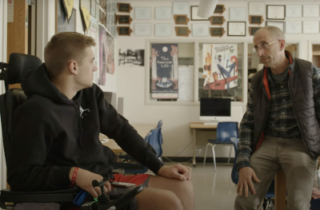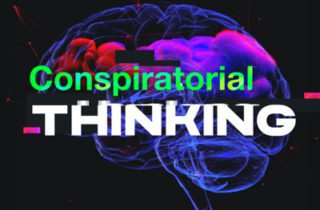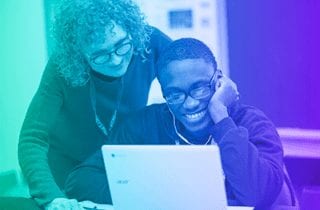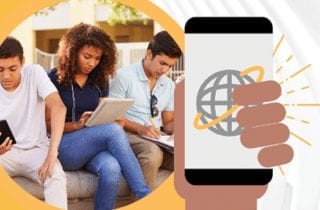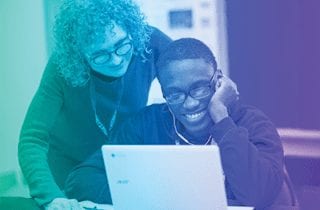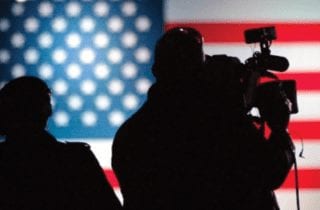Presented by K.C. Boyd, Library Media Specialist, District of Columbia Public Schools; Dr. Cathy Collins, Technology Teacher, Sharon Middle School (MA); Molly Roquet, Head Librarian, Redwood Day (CA); Monica Valdes, Social Studies and Film Teacher, and Social Studies Department Chairperson (FL); and Miriam Romais, Director of NewsLit Nation, News Literacy Project
Moderated by Shaelynn Farnsworth, Senior Director of Educator Network Expansion, News Literacy Project
Presented by Peter Adams, Senior Vice President, Education, News Literacy Project; and Abbie Richards, TikToker and TikTok Disinformation Researcher
Moderated by Shaelynn Farnsworth, National Director of Educator Outreach and Success, News Literacy Project
Presented by Shaelynn Farnsworth, Director of Educator Network Expansion, The News Literacy Project; and John Silva, Senior Director of Professional Learning, The News Literacy Project
As controversies about the pandemic, climate change, and social justice continue to make headlines, these same topics also provide opportunities for students to learn and apply media literacy skills that will help them with their course work, personal lives, and civic engagement.
Social, cultural, and political factors in 2020, such as civil unrest, COVID-19, and the presidential election, have resulted in the highest recorded stress levels of American adults. These stressors have led many to believe in unfounded explanations of events, situations, or conspiracy theories. This type of thinking blames the secretive work of sinister, influential people, involves complicated reasons, generally easily proven false, and relies on faulty logic, reasoning, and false evidence. Belief in conspiracy theories offers simple and often-sensationalized explanations for events we don’t fully understand, meets unconscious psychological and emotional needs, takes advantage of vulnerabilities caused by stress, fears, and anxieties, and provides a sense of community.
Presented by Shaelynn Farnsworth, National Director of Educator Outreach and Success, The News Literacy Project; Ebonee Rice, Vice President, Educator Network, The News Literacy Project; Dr. Cathy Collins, Technology Teacher/Librarian, Sharon Middle School (MA); Dr. James Stancil, Academic Support Specialist, Prairie View A&M University (TX); and Jeff Kaufman, Computer Science Teacher at a Title 1 School (NY)
Between the recent presidential election, COVID-19, and racial unrest, our students are barraged with 24/7 access to news and media that can be real, fake, or altered. According to the presenters in a recent edWebinar, sponsored by ABC-CLIO, the relationship between the terms “news” and “media” are fundamental distinctions that we need to make when working with students in the new era of journalism. Jacquelyn Whiting, Innovation and Technology Specialist for Cooperative Educational Services, and Peter Adams, Senior Vice President of Education for the News Literacy Project, assert that while there are many credentialed journalists, there is also “a world of citizen journalists with mini computers in their pockets.”
Presented by Shaelynn Farnsworth, National Director of Educator Outreach and Success, The News Literacy Project; and John Silva, Senior Director of Education and Training, The News Literacy Project
Today’s students are inundated with information from myriad media sources—social media, blogs, podcasts, text messages, television, internet searches, radio, email, and other communication apps. The list seems almost endless, and it most certainly is overwhelming.
Being an informed contributor to America’s democratic practices and principles requires strong media literacy skills. Without them, even the most civic-minded will find it hard to assess and interpret the mass of information out in the world. Jeff Knutson, Common Sense Education Content Strategist and Senior Producer, recognizes how challenging it is for students to negotiate media. In an edWebinar sponsored by Common Sense Education, Knutson outlined ways teachers can support students as they strengthen their media literacy to knowledgeably participate in civic engagement.


